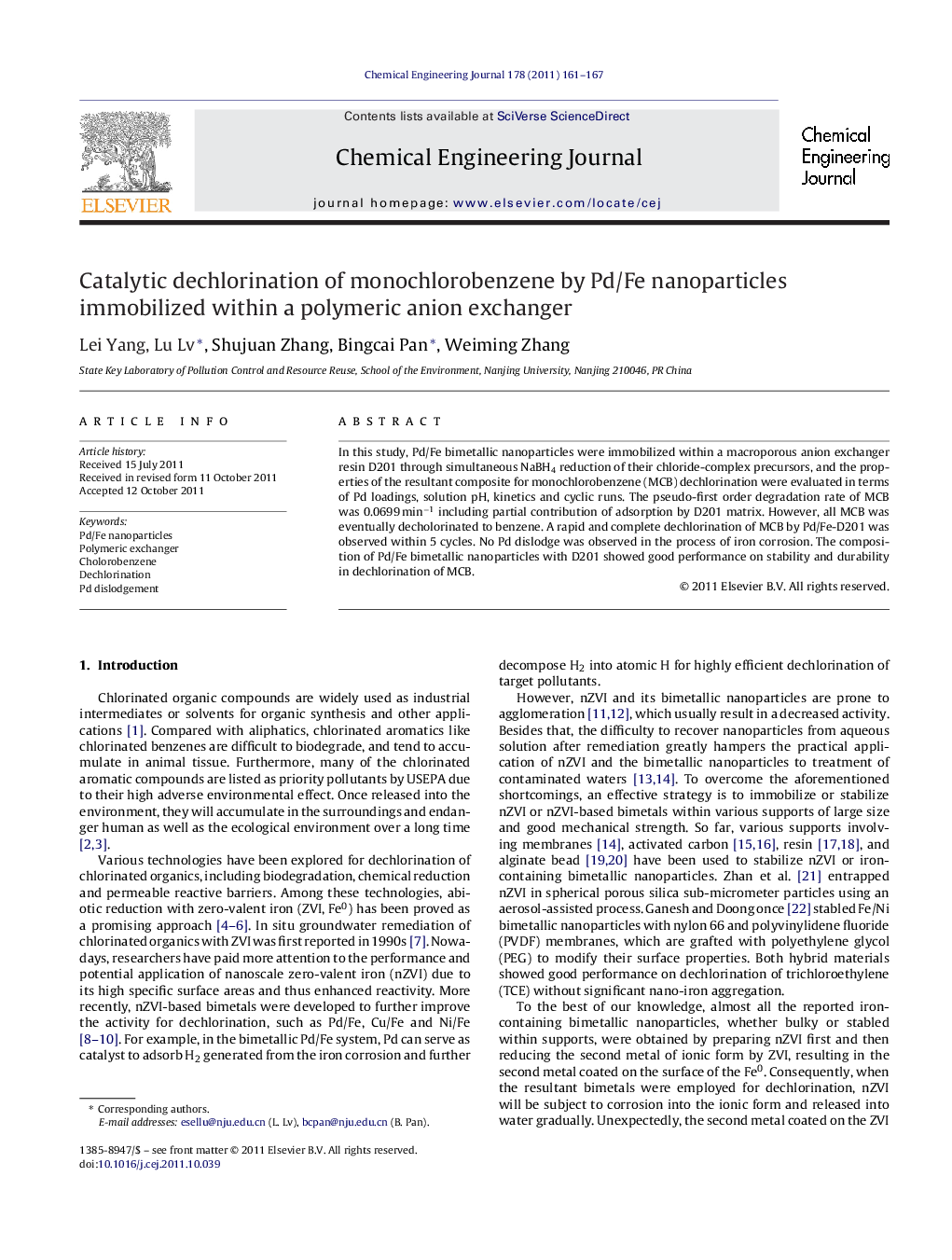| Article ID | Journal | Published Year | Pages | File Type |
|---|---|---|---|---|
| 150458 | Chemical Engineering Journal | 2011 | 7 Pages |
In this study, Pd/Fe bimetallic nanoparticles were immobilized within a macroporous anion exchanger resin D201 through simultaneous NaBH4 reduction of their chloride-complex precursors, and the properties of the resultant composite for monochlorobenzene (MCB) dechlorination were evaluated in terms of Pd loadings, solution pH, kinetics and cyclic runs. The pseudo-first order degradation rate of MCB was 0.0699 min−1 including partial contribution of adsorption by D201 matrix. However, all MCB was eventually decholorinated to benzene. A rapid and complete dechlorination of MCB by Pd/Fe-D201 was observed within 5 cycles. No Pd dislodge was observed in the process of iron corrosion. The composition of Pd/Fe bimetallic nanoparticles with D201 showed good performance on stability and durability in dechlorination of MCB.
► Simultaneous reduction of Fe/Pd precursors was proposed to fabricate the composite catalyst. ► Pd dislodgement was greatly inhibited during MCB dechlorination. ► All the MCB will be dechlorinated into benzene. ► The resultant composite catalyst can be employed for five-cycle runs with constant efficiency.
